#Ruggero Raimondi
Text
‘Tosca, you make me forget God!’ (Tito Gobbi / Ruggero Raimondi)
Tito Gobbi
youtube
Ruggero Raimondi
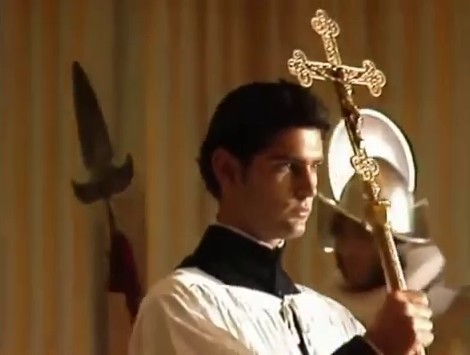
Puccini, Tosca, Te Deum “Va Tosca”
#music#heroine#art#singer#classical music#opera#tosca#puccini#Ruggero Raimondi#Tito Gobbi#love song#love#god#Youtube
2 notes
·
View notes
Text
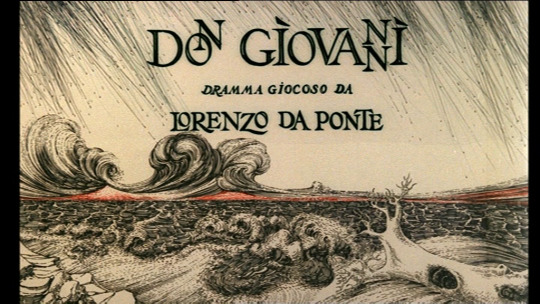
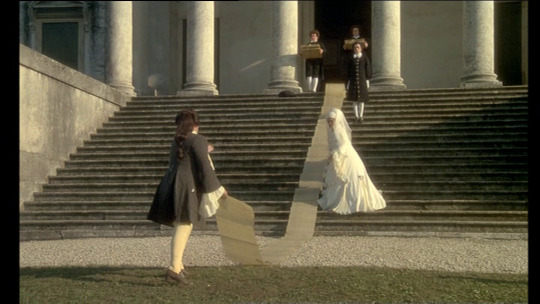

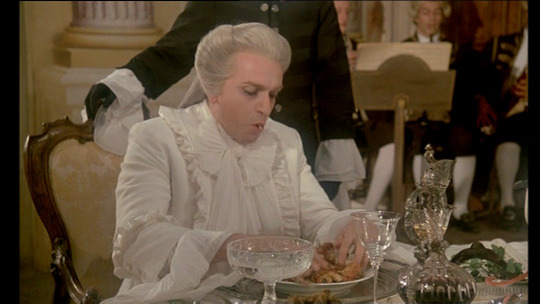
youtube
Don Giovanni (1979)
My rating: 6/10
Fuck Around and Find Out: The Opera: The Movie
This is quite lavishly produced, with great costumes, sets and locations, though it still feels a bit stagey at times, and I know you don't go to the opera for the plot, but I can't help but feel that the whole "haunted statue sends the protagonist to hell" bit could've been set up a bit better - as it is, it feels like a bit of a diabolus ex machina, if you will. Also, I would've rather liked to actually see the bastard suffer a bit, but that may just be me.
The music is great, though, and I gotta say, when the guy is like "Don Giovanni is a WHORE, and I have PROOF" and then unrolls that giant list of women he's slept with? That is a solid bit.
#Don Giovanni#Joseph Losey#Lorenzo da Ponte#Francis Savel#Patricia Losey#Ruggero Raimondi#John Macurdy#Edda Moser#Youtube
3 notes
·
View notes
Text
Vijftien jaar geleden: Ruggero Raimondi in “Le sanglot des anges”
Op 29 mei 2008 startte er op La Une een merkwaardige Franse thrillerserie in vier afleveringen: “Le sanglot des anges”. Merkwaardig, omdat de hoofdrol wordt vertolkt door operazanger Ruggero Raimondi. Ze hadden nochtans beter moeten weten. Het is niet omdat een operazanger goed lijkt te acteren op een operascène, dat het ook een goede filmacteur is. Dat hadden ze toch al moeten leren uit de…

View On WordPress
0 notes
Text
IL TROVATORE 4/5: FERRANDO
IL TROVATORE 4/5: FERRANDO
El rol de Ferrando és el menys valorat dels 5 protagonistes principals d’Il Trovatore, el que no vol dir que no necessiti una veu important de baix verdià, baix profund malgrat que alguns baixos barítons se n’han fet càrrec amb resultats variables.
En la immensa majoria de gravacions extretes del teatre els cantants que l’interpreten no són de primera fila com si succeeix en els altres quatre…
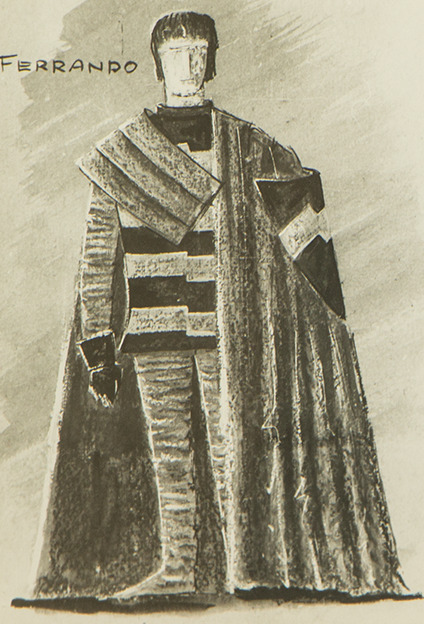
View On WordPress
#Alexánder Tsymbalyuk#Bonaldo Giaiotti#Evgeny Nesterenko#Ezio Pinza#Giorgio Tozzi#Giulio Neri#Ildebrando d&039;Arcangelo#Ivo Vinco#José Van Dam#Kurt Rydl#Kwangchul Youn#Nazzareno de Angelis#Nicola Zaccaria#Nicolai Ghiaurov#Plinio Clabasi#Ruggero Raimondi#Stefan Kocán#Tancredi Pasero
0 notes
Text
Opera on YouTube, Part 2
Le Nozze di Figaro (The Marriage of Figaro)
Glyndebourne Festival Opera, 1973 (Knut Skram, Ileana Cotrubas, Kiri Te Kanawa, Benjamin Luxon; conducted by John Pritchard; English subtitles)
Jean-Pierre Ponnelle studio film, 1976 (Hermann Prey, Mirella Freni, Kiri Te Kanawa, Dietrich Fischer-Dieskau; conducted by Karl Böhm; English subtitles) – Acts I and II, Acts III and IV
Tokyo National Theatre, 1980 (Hermann Prey, Lucia Popp, Gundula Janowitz, Bernd Weikl; conducted by Karl Böhm; Japanese subtitles)
Théâtre du Châtelet, 1993 (Bryn Terfel, Alison Hagley, Hillevi Martinpelto, Rodney Gilfry; conducted by John Eliot Gardiner; Italian subtitles)
Glyndebourne Festival Opera, 1994 (Gerald Finley, Alison Hagley, Renée Fleming, Andreas Schmidt; conducted by Bernard Haitink; English subtitles)
Zürich Opera House, 1996 (Carlos Chaussón, Isabel Rey, Eva Mei, Rodney Gilfry; conducted by Nikolaus Harnoncourt; English subtitles)
Berlin State Opera, 2005 (Lauri Vasar, Anna Prohaska, Dorothea Röschmann, Ildebrando d'Arcangelo; conducted by Gustavo Dudamel; French subtitles)
Salzburg Festival, 2006 (Ildebrando d'Arcangelo, Anna Netrebko, Dorothea Röschmann, Bo Skovhus; conducted by Nikolas Harnoncourt; English subtitles) – Acts I and II, Acts III and IV
Teatro all Scala, 2006 (Ildebrando d'Arcangelo, Diana Damrau, Marcella Orasatti Talamanca, Pietro Spagnoli; conducted by Gérard Korsten; English and Italian subtitles)
Salzburg Festival, 2015 (Adam Plachetka, Martina Janková, Anett Fritsch, Luca Pisaroni; conducted by Dan Ettinger; no subtitles)
Tosca
Carmine Gallone studio film, 1956 (Franca Duval dubbed by Maria Caniglia, Franco Corelli, Afro Poli dubbed by Giangiacomo Guelfi; conducted by Oliviero de Fabritiis; no subtitles)
Gianfranco de Bosio film, 1976 (Raina Kabaivanska, Plácido Domingo, Sherrill Milnes; conducted by Bruno Bartoletti; English subtitles)
Metropolitan Opera, 1978 (Shirley Verrett, Luciano Pavarotti, Cornell MacNeil; conducted by James Conlon; no subtitles)
Arena di Verona, 1984 (Eva Marton, Jaume Aragall, Ingvar Wixell; conducted by Daniel Oren; no subtitles)
Teatro Real de Madrid, 2004 (Daniela Dessí, Fabio Armiliato, Ruggero Raimondi; conducted by Maurizio Benini; English subtitles)
Royal Opera House, Covent Garden, 2011 (Angela Gheorghiu, Jonas Kaufmann, Bryn Terfel; conducted by Antonio Pappano; English subtitles)
Finnish National Opera, 2018 (Ausrinė Stundytė, Andrea Carè, Tuomas Pursio; conducted by Patrick Fournillier; English subtitles)
Teatro alla Scala 2019 (Anna Netrebko, Francesco Meli, Luca Salsi; conducted by Riccardo Chailly; Hungarian subtitles)
Vienna State Opera, 2019 (Sondra Radvanovsky, Piotr Beczala, Thomas Hampson; conducted by Marco Armiliato; English subtitles)
Ópera de las Palmas, 2024 (Erika Grimaldi, Piotr Beczala, George Gagnidze; conducted by Ramón Tebar; no subtitles)
Don Giovanni
Salzburg Festival, 1954 (Cesare Siepi, Otto Edelmann, Elisabeth Grümmer, Lisa della Casa; conducted by Wilhelm Furtwängler; English subtitles)
Giacomo Vaccari studio film, 1960 (Mario Petri, Sesto Bruscantini, Teresa Stich-Randall, Leyla Gencer; conducted by Francesco Molinari-Pradelli; no subtitles)
Salzburg Festival, 1987 (Samuel Ramey, Ferruccio Furlanetto, Anna Tomowa-Sintow, Julia Varady; conducted by Herbert von Karajan; no subtitles)
Teatro alla Scala, 1987 (Thomas Allen, Claudio Desderi, Edita Gruberova, Ann Murray; conducted by Riccardo Muti; English subtitles)
Peter Sellars studio film, 1990 (Eugene Perry, Herbert Perry, Dominique Labelle, Lorraine Hunt Lieberson; conducted by Craig Smith; English subtitles)
Teatro Comunale di Ferrara, 1997 (Simon Keenlyside, Bryn Terfel, Carmela Remigio, Anna Caterina Antonacci; conducted by Claudio Abbado; no subtitles) – Act I, Act II
Zürich Opera, 2000 (Rodney Gilfry, László Polgár, Isabel Rey, Cecilia Bartoli; conducted by Nikolaus Harnoncourt; English subtitles)
Festival Aix-en-Provence, 2002 (Peter Mattei, Gilles Cachemaille, Alexandra Deshorties, Mirielle Delunsch; conducted by Daniel Harding; no subtitles)
Teatro Real de Madrid, 2006 (Carlos Álvarez, Lorenzo Regazzo, Maria Bayo, Sonia Ganassi; conducted by Victor Pablo Pérez; English subtitles)
Festival Aix-en-Provence, 2017 (Philippe Sly, Nahuel de Pierro, Eleonora Burratto, Isabel Leonard; conducted by Jérémie Rohrer; English subtitles)
Madama Butterfly
Mario Lanfranchi studio film, 1956 (Anna Moffo, Renato Cioni; conducted by Oliviero de Fabritiis; no subtitles)
Jean-Pierre Ponnelle studio film, 1974 (Mirella Freni, Plácido Domingo; conducted by Herbert von Karajan; English subtitles)
New York City Opera, 1982 (Judith Haddon, Jerry Hadley; conducted by Christopher Keene; English subtitles)
Frédéric Mitterand film, 1995 (Ying Huang, Richard Troxell; conducted by James Conlon; English subtitles)
Arena di Verona, 2004 (Fiorenza Cedolins, Marcello Giordani; conducted by Daniel Oren; Spanish subtitles)
Sferisterio Opera Festival, 2009 (Raffaela Angeletti, Massimiliano Pisapia; conducted by Daniele Callegari; no subtitles)
Vienna State Opera, 2017 (Maria José Siri, Murat Karahan; conducted by Jonathan Darlington; no subtitles)
Wichita Grand Opera, 2017 (Yunnie Park, Kirk Dougherty; conducted by Martin Mazik; English subtitles)
Teatro San Carlo, 2019 (Evgenia Muraveva, Saimir Pirgu; conducted by Gabriele Ferro; no subtitles)
Rennes Opera House, 2022 (Karah Son, Angelo Villari; conducted by Rudolf Piehlmayer; French subtitles)
#opera#complete performances#youtube#le nozze di figaro#the marriage of figaro#tosca#don giovanni#madama butterfly#madame butterfly#wolfgang amadeus mozart#giacomo puccini
31 notes
·
View notes
Text
The Devil Has All the Best Tunes: Ranking the Mephistopheles Arias
Since getting myself properly acquainted with Arrigo Boito's Mefistofele, I've been thinking about how much the character of Mephistopheles brings out the best in opera composers, although that's only fitting, since he also did for Goethe. And the idea of this listicle suggested itself to me pretty quickly as something to think about while I was having a slow day at work on Friday. Thus! My completely idiosyncratic ranking of the eight arias sung by Mephistopheles over the three classic Faust operas:
La Damnation de Faust (1846), Hector Berlioz
Faust (1859, later revised), Charles Gounod
Mefistofele (1868/75), Arrigo Boito
All three operas are considered in their best-known forms—like, I know there's a recent recording of the 1859 version of Faust but I haven't heard it and it doesn't even have "Le veau d'or." I'm also not rating the specific performances I used for the audio/video illustrations—all of these are of course extremely well-represented in recordings and have many, many, many versions on Youtube (the playlist I made while prepping this post has like 56 and it's only a small fraction of them all). I just picked ones that a) I like and b) allowed me to use eight different singers for the eight arias.
Finally, in case you're wondering: all of these are actually fantastic. There's only one that I don't absolutely love and I still really like it. This is just a straight-up array of bangers from beginning to end.
Behind the cut: the bangers. Join us, won't you?
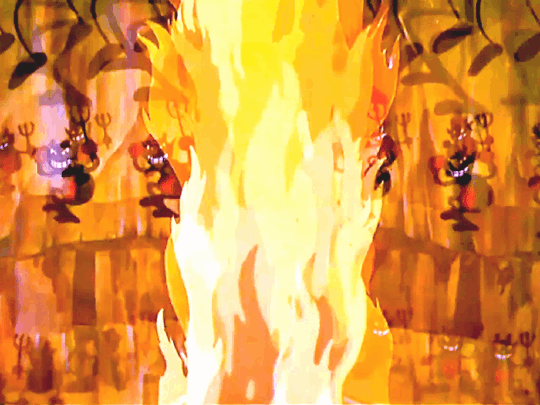
8. "Vous qui faites l'endormie" (Gounod)
(Text/translation)
So, here's the one I just like instead of being generally feral about. If this is your last-place entry in a ranking of arias you're doing fine. And it's basically right from Goethe! But while the evil laughter is fun, the melody just doesn't stick with me, and while comparisons are odious (pfft, right, I love comparisons) I think Berlioz did a much better job with this text.
That said, one way to make me love it is to have Bryn Terfel sing it while pawing at a strung-out (in-universe!) Roberto Alagna. What can I say, I'm a slut for Faustopheles content. (And I do love me some Bryn Terfel)
youtube
7. "Une puce gentille" (Berlioz)
(Text)
We now arrive, basically immediately, at the portion of the list where I unqualifiedly adore everything on it even without the benefit of particularly gay stagings. In general I feel that my rankings here don't quite reflect how much I love La Damnation de Faust (although longtime readers of this blog will have noticed), but I think the strength of the piece is not as much in the arias (although I love the arias) but in the duet and ensemble scenes. In any case this is a delightful number (again, directly from Goethe, also set to music by Beethoven and, later, Mussorgsky) which is also not even the strongest bass aria in the scene. I think we can all agree Brander comes out on top in the Auerbachs Keller bass throwdown, right?
As far as video choices go I always have mixed feelings at best about fully staged versions of La Damnation to begin with—performing it with onstage action belies the extent to which the most important action is psychological, and conversely there are some truly epic moments that are almost impossible to stage in a way that does justice to the music. That said: here's Ruggero Raimondi camping it up.
youtube
6. "Devant la maison" (Berlioz)
(Text)
Up above I mentioned that Berlioz does a better job with Mephistopheles' serenade than Gounod does—this is just a fun, snarky little trifle with a mock hurdy-gurdy accompaniment* and a collective evil laugh for the chorus. What's not to love?
Berlioz wrote some alternative readings into the Damnation score so that the role of Mephistopheles could be played either by a true bass or a baritone. I prefer the former (as do I think most contemporary conductors, as I haven't seen many other recordings that cast a baritone**) but Jules Bastin's lighter timbre suits the intricacy of this melody and his suavity contrasts well with the rough edges of the chorus.
youtube
*The libretto specifies that the singer of Mephistopheles should pantomime playing one, although this seems not to have been followed by most performers.
**There is one with Dietrich Fischer-Dieskau as Mephistopheles and Placido Domingo as Faust and, bafflingly, it sucks. Go figure.
5. "Ave Signor" (Boito)
(Text)
We aren't even quite into the top half of the list yet (I know! Like I said: THEY ARE ALL SO GOOD) and we're already getting to the real heavy hitters. This aria wins the special recognition for Outstanding Achievement in the Field of Cuntiness. Like, sure, you're leading your best demonic life, why NOT have a casual chat with the old man (il vecchio, lol) upstairs, pout about how humans suck so much it's no fun to even tempt them these days, and then make a little bet about that weirdo Faust, all to a jaunty little flute accompaniment? Magnificent. *chef's kiss*
Erwin Schrott never fails to bring the sass and that suits this aria perfectly. The leather jacket is an excellent touch as well. I want one. (I actually own a giant leather jacket but the collar doesn't do that. I want one where the collar does that)
youtube
4. "Voici des roses" (Berlioz)
(Text)
Okay, I'm gonna let you all in on a little secret which is that STRICTLY SPEAKING, from a musical standpoint, I probably should switch around this aria and the previous. But this one gets a generous helping of sentimental favorite points for two reasons:
a) I am, as discussed, a slut for Faustopheles content and this is the single most homoerotic Mephistopheles aria in the operatic Faust corpus. He calls Faust "beloved" (bien-aimé) and sings about how he's going to be covered with "crimson kisses" and it's amazing. And very, very gay.
b) I've been onstage while John Relyea sang this and I was part of the ensuing chorus, an extended, complex seduction/dream sequence which I am pretty sure took up about half the rehearsal period all on its own. When Mephistopheles sings his recitative at the very end of it ("c'est bien, c'est bien, jeunes esprits, je suis content de vous") it always made me so happy because yeah, we EARNED THAT. But the moment before the chorus section, hearing such a commanding singer perform such a beautiful and sexy aria and then coming into that and not breaking the mood—God, it was just pure fucking magic.
So here, of course, is John Relyea singing it. Not the production I was in, for the record. I probably don't need to clarify that I have never been in the chorus at the Met. (The video cuts off before the chorus anyway but does include "Une puce gentille" and the following recitatives, and I'm not sure YouTube lets you timestamp your links anymore so if you want to skip to "Voici des roses," start around 3:15. Or you could also listen to "Une puce gentille" again because John Relyea just crushes this role)
youtube
3. "Ecco il mondo" (Boito)
(Text)
Of the three great Faust operas, Mefistofele has its finger most firmly on the pulse of the sheer chaos muppet energy exuded by its title character. This aria reprises some of the motifs introduced in "Ave, Signor" (the jaunty flute line contrasting with the grandiose intervals of the vocal line) and revolves around some really fun stagecraft. In performance, during this aria Mephistopheles displays and then smashes a model of the world—the original libretto calls for a glass globe, while the most iconic modern production uses an ordinary latex balloon. Sometimes you'll see grouchy opera purists grumble online about the latter, and they are silly: it's a perfect reflection of Mephistopheles' disdain for the "filthy and mad" (sozza e matta) human race—and his perhaps more complex feelings about one particular representative thereof. I haven't seen enough versions of this opera to cite any performances where the second half of the aria is addressed directly to Faust, but there's some pretty fabulous potential there.
Going old school for the recording here, with Cesare Siepi. Found this one in a blog post that was mostly devoted to pearl-clutching about the Carsen/Levine staging (in its most recent revival) and the sight of Christian Van Horn in tights: the reviewer found Van Horn to be a second-rate version of Siepi (on vocal grounds, not shirtlessness grounds). Harsh, man, and I'm not even that into Christian Van Horn, at least not in this role. But this is a great recording all on its own. I'm not sure why they put Emil Jannings on the cover though.
youtube
2. "Le veau d'or" (Gounod)
(Text/translation)
What can I say? This one needs no introduction, really. It's one of the great operatic bangers of all time (and one of the most persistent earworms). It was in Hannibal (I think)! Its reputation precedes it and the only reason it's in second place here is because there's one more aria that's even more awesome.
I've always loved the way Rene Pape sings this—obviously you could eat the vocals with a spoon and his physicality lends a sort of Orson Welles-y* gangster energy to the role, but also there's something about his approach to it that gives you the sense that, as @skeleton-richard once put it, "he's been both the calf and the idiots in the mud." I also love that he gets to do a little dance in this version. LET MEPHISTOPHELES TWERK.
youtube
*And wouldn't late-period Welles have been PERFECT as Goethe!Mephistopheles? I weep for the lost opportunity.
1. "Son lo spirito che nega" (Boito)
(Text)
And here we are. This aria is just an absolute masterpiece, the greatest of a truly impressive array of bangers. It just captures everything we love about the character of Mephistopheles: the chaos and terrifying cynicism, the subterranean low notes, the compelling derision and mockery. The whistling! How can you not love it? The whole thing just makes my toes curl. It really sums up why this opera should be better known and loved, because fuck. Brain chemistry forcibly altered.
AND SPEAKING OF TOE CURLING. For this bravura composition, a bravura performance by the great Samuel Ramey. He absolutely owns this role and that's perhaps nowhere most evident than right here. Even if he doesn't do his own whistling.
youtube
#opera#faust#gounod faust#mefistofele#la damnation de faust#mephistopheles#mephistopheles monday#this was a lot of fun to make#should i tag all the individual singers?#or does tumblr still cut you off after five tags? idk
36 notes
·
View notes
Text

"La Vie est un Roman" d'Alain Resnais (1983) avec Fanny Ardant, Ruggero Raimondi, André Dussollier, Vittorio Gassman, Sabine Azéma, Pierre Arditi, Géraldine Chaplin, Martine Kelly et Véronique Silver, septembre 2023.
2 notes
·
View notes
Text
I'm using radio 3 classica as background during my study session and I was patiently wait for this neverending expressionist music piece to end when they announced they were going to air some rossini opera feat. ruggero raimondi 💀
1 note
·
View note
Photo

Isabelle Huppert in La Truite (Joseph Losey, 1982)
Cast: Isabelle Huppert, Jean-Pierre Cassel, Jeanne Moreau, Daniel Olbrychski, Jacques Spiesser, Isao Yamagata, Jean-Paul Roussillon, Roland Bertin, Lisette Malidor, Craig Stevens, Ruggero Raimondi, Alexis Smith. Screenplay: Monique Lange, Joseph Losey, based on a novel by Roger Vailland. Cinematography: Henri Alekan. Production design: Alexandre Trauner. Film editing: Marie Castro. Music: Richard Hartley.
I wish I had known beforehand that Joseph Losey's La Truite is supposedly a comedy or a "French sex farce" as the description on Rotten Tomatoes puts it. I wouldn't have worried so much that I had lost my sense of humor -- or concluded that Losey didn't know how to tell a joke. Or perhaps I would have laughed more at the scenes that seem to be meant to be funny, like Frédérique's (Isabelle Huppert) bowling-alley hustle or the one in which she tosses out of the window the taxidermied fish belonging to the man who molested her in adolescence. Or even at the absurdity of seeing such luminaries of French cinema as Huppert, Jeanne Moreau, and Jean-Pierre Cassel in a bowling alley. There was one scene that amused me: Alexis Smith's very funny cameo appearance as the worldly wise Gloria, whom Frédérique, encumbered with an armload of gift-wrapped packages, encounters in a Japanese hotel. But there's really not much humor to be found in stale marriages, suicide attempts, sexual harassment, and an apparent murder, anyway. Mostly La Truite is a slog, with Losey unable to set the proper prevailing tone -- or really any tone -- for his story about a young woman's rise to power and influence. We spend so much time puzzling out who these characters are and what their relationships to one another may be, that there's not much time left to appreciate the story, especially since it's chopped up with flashbacks. We know where we are in time mostly by the length of Frédérique's hair, which starts out in her childhood in the trout hatchery as a waist-length red mane, has become a pageboy bob by the time she meets the Ramberts (Moreau and Cassel) and Saint-Genis (Daniel Olbrychski), and is chopped off becomingly when the latter takes her with him to Japan. La Truite is visually interesting, thanks to the work of two veterans of French film: cinematographer Henri Alekan and production designer Alexandre Trauner. But Losey's work as both director and screenwriter lets them, and his cast, down.
5 notes
·
View notes
Text

CINE (Musical Ópera)
Carmen de Bizet (1984)
Título original: Carmen
Francia
Dirección: Francesco Rosi
Atención: Solo para ver en PC o Notebook
Para ver el Film pulsa el Link:
https://artecafejcp.wixsite.com/escenario-cafejcp/post/carmen-de-bizet-1984
Repartro: Julia Migenes, Plácido Domingo, Ruggero Raimondi,
Faith Esham, Francois La Roux, John -Paul Bogart, Susan Watson
Género: Musical. Drama | Celos. Siglo XIX. Ópera.
Sinopsis: Una de las versiones filmadas más populares de
la ópera de Bizet "Carmen", inspirada a su vez en la novela
de Prosper Mérimée. En la España invadida por las tropas
napoleónicas, un soldado francés llamado José se enamora
de la bella y temperamental Carmen, pero ella no le
corresponde del todo
Premios:
1984: Globos de oro: Nominada Mejor película extranjera
1985: Premios BAFTA: Nominada Mejor película en habla no inglesa y sonido
1984: Premios César: Mejor Sonido. 7 nominaciones incluyendo Mejor película
1984: Premios David di Donatello: 6 premios, incluyendo a mejor película. 9 nom.
1984: Asociación de Críticos Norteamericanos (NBR): Nominada a Mejores películas
Café Mientras Tanto
jcp
0 notes
Text
Смотрите "Ruggero Raimondi - Leo Nucci- I Puritani - Suoni la tromba" на YouTube
youtube
0 notes
Video
CARMEN (1984) from Mairit21 on Vimeo.
Película de Francesco Rosi sobre la ópera de Georges Bizet, con libreto de Ludovic Halévy y Henri Meilhac, basado en la novela de Prosper Mérimée. Coproducción de Gaumont y Opera Film Produzione.
Coro de la Radio de Francia. Orquesta Nacional de Francia. Director: Lorin Maazel.
Julia Migenes-Johnson (Carmen), Plácido Domingo (Don José), Ruggero Raimondi (Escamillo), Faith Esham (Micaela).
0 notes
Note
Where do you watch operas?
There are plenty of complete filmed opera performances available on YouTube, which you can watch for free. Unfortunately, not all of them have English subtitles, but if necessary, you can always find a translation of the libretto online to follow along with.
In fact, just for fun, as an example, I'll provide some links to complete filmed performances of the world's top 10 most popular operas, with English subtitles.
Die Zauberflöte (The Magic Flute)
Studio film, 1971 (Nicolai Gedda, Edith Mathis, William Workman, Christina Deutekom, Hans Sotin; directed by Sir Peter Ustinov; conducted by Horst Stein)
La Traviata
Studio film, 1968 (Anna Moffo, Franco Bonisolli, Gino Bechi; directed by Mario Lanfranchi; conducted by Giuseppe Patané)
Carmen
Royal Opera House, Covent Garden, 2006 (Anna Caterina Antonacci, Jonas Kaufmann, Ildebrando d'Arcangelo, Norah Ansellem; staged by Francesca Zambello; conducted by Antonio Pappano)
La Bohéme
Studio film, 1965 (Mirella Freni, Gianni Raimondi, Rolando Panerai, Adriana Martino; directed by Franco Zeffirelli; conducted by Herbert von Karajan)
Le Nozze di Figaro (The Marriage of Figaro)
Teatro alla Scala, 2006 (Ildebrando d'Arcangelo, Diana Damrau, Marcella Orsatti Talamanca, Pietro Spagnoli, Monica Bacelli; staged by Giorgio Strehler; conducted by Gérard Korsten)
Tosca
Teatro Real de Madrid, 2004 (Daniela Dessí, Fabio Armiliato, Ruggero Raimondi; staged by Nuria Espert; conducted by Maurizio Benini)
Madama Butterfly
Theatrical film, 1995 (Ying Huang, Richard Troxell, Ning Liang, Richard Cowan; directed by Frédéric Mitterand; conducted by James Conlon)
Don Giovanni
Zurich Opera, 2001 (Rodney Gilfry, László Polgár, Isabel Rey, Cecilia Bartoli, Liliana Nikiteanu, Roberto Saccá, Oliver Wimer, Matti Salminen; staged by Jürgen Flimm; conducted by Nikolaus Harnoncourt)
Il Barbiere di Siviglia (The Barber of Seville)
Metropolitan Opera, 2007 (Peter Mattei, Juan Diego Florez, Joyce diDonato, John Del Carlo, John Relyea; staged by Bartlett Sher; conducted by Maurizio Benini)
Act I, Act II
Rigoletto
Studio film, 1982 (Ingvar Wixell, Luciano Pavarotti, Edita Gruberova; directed by Jean-Pierre Ponnelle; conducted by Riccardo Chailly)
#opera#complete performance#die zauberflöte#the magic flute#la traviata#carmen#la boheme#le nozze di figaro#the marriage of figaro#tosca#madama butterfly#don giovanni#il barbiere di siviglia#the barber of seville#rigoletto#english subtitles#youtube
368 notes
·
View notes
Photo

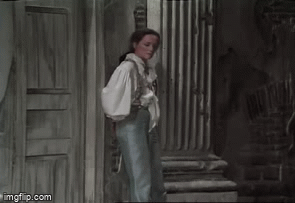
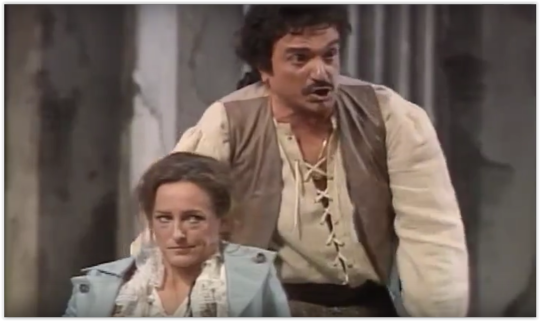
really not here for anyone’s shit
#Frederica von Stade#Cherubino#Le nozze di Figaro#The Marriage of Figaro#mezzos#trouser roles#met opera streams#post also features#Ruggero Raimondi#Figaro#Michel Sénéchal#Basilio#opera#opera tag#opera gifs#i love her face in that last one so much
7 notes
·
View notes
Text

Fanny Ardant et Ruggero Raimondi dans "La Vie est un Roman" d'Alain Resnais (1983), septembre 2023.
2 notes
·
View notes